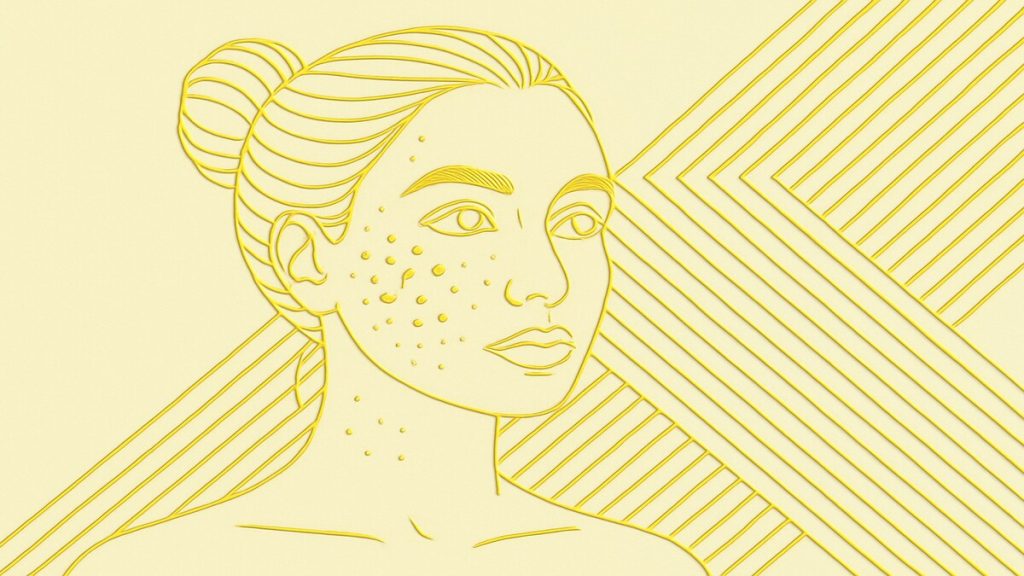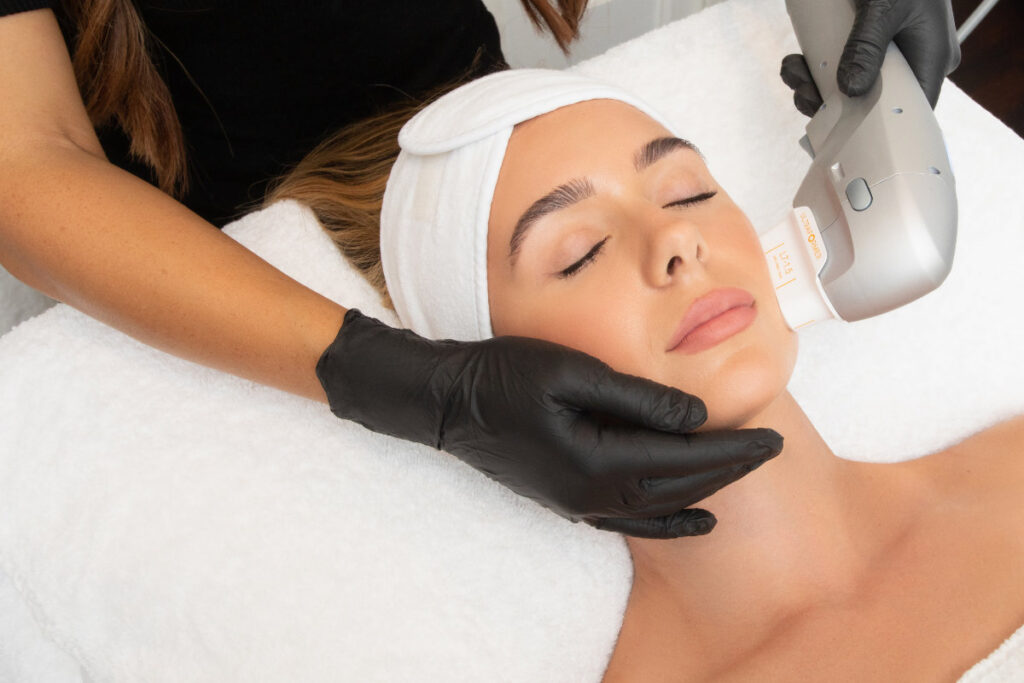
For many individuals living in Perth and surrounding areas, acne is more than a transient skin concern. Inflammatory acne, in particular, can have significant implications not only for skin health but also for a person’s comfort, daily routine, and overall well being. When it progresses into scarring, patients often feel overwhelmed and unsure where to turn.
Dr Guy Watts, Specialist Plastic & Reconstructive Surgeon and founder of CLINISPA, recognises these concerns and offers patient-focused care that balances current dermatological insights with reconstructive expertise. At CLINISPA, patients benefit from detailed consultations and tailored solutions that align with clinical best practice, helping them make confident, informed decisions.
What Is Inflammatory Acne?
Inflammatory acne describes the red, swollen, often painful form of acne that goes beyond clogged pores or blackheads. It arises when hair follicles become blocked and bacteria trigger an immune response, causing localised inflammation.
Inflammatory acne can include:
- Papules – Small, firm, red bumps that may feel tender to the touch. They do not contain visible pus but indicate irritation beneath the skin’s surface.
- Pustules – Similar to papules but with a white or yellow centre filled with pus. They often develop when papules progress further, as white blood cells accumulate to fight bacteria.
- Nodules – Larger, deeper lesions located under the skin that can be quite painful. Nodules may persist for weeks and often require medical treatment due to the risk of scarring.
- Cysts – Fluid-filled lumps that form deep in the skin layers. Cystic acne is considered severe and has a higher likelihood of causing permanent textural changes or discolouration.
Contributing factors include:
- Excess oil production (sebum) – Hormonal changes can increase oil output, particularly during puberty, menstruation, pregnancy, or due to endocrine disorders.
- Blocked pores – A combination of oil, dead skin cells, and environmental debris can clog pores, creating an ideal setting for bacterial growth.
- Bacterial colonisation – Cutibacterium acnes (formerly Propionibacterium acnes) thrives in blocked follicles, initiating inflammation as the body reacts to its presence.
- Hormonal influence – Conditions such as polycystic ovarian syndrome (PCOS) or elevated androgens may intensify acne in both men and women.
- Genetic predisposition – A family history of moderate or severe acne increases the likelihood of developing persistent breakouts.
- External factors – Stress, certain cosmetic products, friction from helmets or masks, and even diet (particularly high-glycaemic foods or excessive dairy) may aggravate inflammation in susceptible individuals.
How Acne Scarring Develops
While not all acne results in scarring, repeated inflammation, delayed treatment, or manipulation of active breakouts significantly raises the risk of permanent skin changes. Understanding the biological process behind scar formation helps patients make timely decisions about intervention.
Types of acne scars include:
- Atrophic scars – These are depressions in the skin caused by collagen loss during the healing process. Subtypes include:
- Ice pick scars: Deep, narrow scars that resemble puncture marks. They often extend into the dermis and are resistant to surface treatments alone.
- Boxcar scars: Broad, rectangular depressions with defined edges. These often result from inflammatory outbreaks on the cheeks or temples.
- Rolling scars: Soft, sloped depressions with an undulating appearance caused by tethering of the skin to underlying structures.
- Ice pick scars: Deep, narrow scars that resemble puncture marks. They often extend into the dermis and are resistant to surface treatments alone.
- Hypertrophic scars and keloids – Result from overactive collagen production during healing. These scars rise above the skin’s surface and are more common in individuals with darker skin tones or a personal or family history of keloid formation.
- Post-inflammatory hyperpigmentation (PIH) – These are flat areas of darker pigmentation left after acne has healed. While not technically scars, they can take months to fade and may cause distress, especially in individuals with medium to dark skin tones.
The emotional burden of scarring can also be considerable. Many patients report feeling self-conscious, socially withdrawn, or hesitant to engage in activities where their skin is visible. These experiences underscore the importance of early intervention and comprehensive care – both of which are central to Dr Guy Watts’ approach at CLINISPA, Perth.
What Are Your Options for Managing Inflammatory Acne?
Addressing acne effectively requires a strategy that is individualised, medically sound, and responsive to each patient’s skin type, health background, and lifestyle. At CLINISPA, Our Team offers detailed assessments that guide appropriate choices across both medical and aesthetic domains.
Topical Treatments
- Retinoids (e.g., adapalene, tretinoin): Help to regulate skin cell turnover, preventing the formation of new blockages and reducing the risk of clogged follicles.
- Benzoyl peroxide: Offers antibacterial properties that reduce C. acnes populations and helps clear mild to moderate breakouts.
- Topical antibiotics (e.g., clindamycin, erythromycin): Often used in combination with benzoyl peroxide to decrease resistance and maximise effect.
- Azelaic acid: Particularly helpful in managing redness, pigmentation, and bacteria, while being well tolerated across various skin tones.
- Salicylic acid: A beta-hydroxy acid that penetrates oil-filled pores to loosen blockages and reduce inflammation.
Oral/Systemic Treatments
- Oral antibiotics: Commonly prescribed for moderate inflammatory acne. They target deeper inflammation and are typically used short-term to prevent resistance.
- Hormonal treatments: Include oral contraceptives or anti-androgens, which help reduce sebum production in hormonally-driven acne.
- Oral isotretinoin: A highly effective treatment for severe acne, this vitamin A derivative reduces oil production, normalises skin cell turnover, and has long-term remission potential. It requires monitoring due to possible side effects.
Clinic-Based Therapies
- Light-based treatments: Use specific wavelengths to target bacteria and inflammation. Blue light, red light, or intense pulsed light (IPL) may be beneficial for ongoing acne or post-acne redness.
- Chemical peels: Medical-grade peels using salicylic or glycolic acid help improve both acne and early pigmentation concerns. Treatments are tailored to skin sensitivity.
- Hydration-focused facials: Some individuals with dry, acne-prone skin benefit from non-comedogenic cleansing protocols administered in clinical environments.
At CLINISPA, we believe that treatment plans should be neither rushed nor generic. The goal is to reduce inflammation effectively while minimising the chances of long-term scarring, with each step tailored to the patient’s skin biology and treatment goals.
Addressing Acne Scars: What Can Be Done?
Once acne has resolved, some individuals are left with persistent textural changes or pigmentation that doesn’t improve with topical products alone. Fortunately, modern procedural options can support the skin’s natural repair processes and help improve its appearance.
Non-Surgical Options
- Fractional laser resurfacing: Delivers micro-columns of energy into the skin, stimulating collagen production while leaving surrounding skin intact for faster recovery. Particularly effective for boxcar and rolling scars.
- Microneedling with radiofrequency (RF): Combines controlled micro-injury with radiofrequency energy to remodel the skin’s deeper layers. Offers gradual, long-lasting improvements with minimal downtime.
- Chemical reconstruction using TCA (CROSS technique): High-strength trichloroacetic acid is applied directly to ice pick scars to stimulate remodelling and collagen repair over time.
- Dermal fillers: In selected cases, hyaluronic acid fillers can be used to lift atrophic scars for an immediate smoothing effect. This is typically a temporary option but can offer psychological relief while longer-term treatments are underway.
Surgical Options
- Subcision: A minor surgical technique that breaks down fibrotic bands tethering the skin. This is often combined with fillers or energy-based treatments to maximise results.
- Punch excision or grafting: Used for isolated deep scars such as ice pick or sharply defined boxcar scars. The scar is surgically removed and the area closed or grafted.
- Scar revision surgery: In cases where raised or prominent scars interfere with function or comfort, precise excision and re-closure may improve both form and feel.
Dr Guy Watts, with his specialist training in reconstructive and aesthetic surgery, is uniquely positioned to assess when surgical precision may offer meaningful benefit. At CLINISPA, Perth, scar treatments are never standardised – they are planned in stages, adjusted over time, and explained thoroughly so patients know what to expect.
Personalised Care with CLINISPA in Perth
Effective acne and scar care begins with understanding the patient, not just the skin. During consultations at CLINISPA, the team conduct a full assessment, which may include:
- Detailed skin analysis: Evaluating active inflammation, skin tone, scarring patterns, and sensitivities
- Medical history review: Including hormonal influences, family history, allergies, and prior treatments
- Lifestyle considerations: Sun exposure habits, occupational factors (e.g., heat, helmets), and product use
- Mental health considerations: Recognising the emotional effects of long-term acne or visible scarring
Treatment plans are then built collaboratively. We discuss all reasonable options and guide patients through evidence-based choices suited to their comfort level, goals, and clinical picture. Follow-up reviews are scheduled as needed to monitor outcomes, adjust strategies, or support ongoing skin maintenance.
FAQs About Inflammatory Acne and Acne Scarring
How do I know if I have inflammatory acne or a different type of acne?
Inflammatory acne is typically characterised by red, swollen, and sometimes painful lesions such as papules, pustules, nodules, or cysts. Unlike non-inflammatory acne (e.g. blackheads or whiteheads), these breakouts involve deeper irritation and are more likely to result in long-term skin changes. A consultation at CLINISPA can help determine the type and severity of your acne and guide appropriate treatment planning.
Is it possible to treat active acne and scarring at the same time?
In many cases, treatments can be structured in stages to address both active breakouts and underlying scarring. While the initial focus is often on reducing inflammation and preventing new lesions, certain therapies – such as light-based treatments or chemical peels – can also support skin texture improvement. We carefully sequence treatments based on skin response, ensuring that both current symptoms and longer-term concerns are addressed.
Will acne scars go away on their own over time?
Some superficial post-acne marks, such as mild pigmentation, may fade gradually. However, true acne scars – particularly atrophic or tethered scars – usually persist without targeted intervention. While no treatment can completely erase scars, a combination of clinical therapies at CLINISPA can often lead to visible improvement in skin smoothness and tone.
What makes a person more prone to developing acne scars?
Scarring risk increases with severe or long-standing inflammatory acne, delayed treatment, frequent skin picking, and a genetic tendency to form prominent scars. Additionally, individuals with deeper nodular or cystic lesions are more likely to experience permanent changes in skin structure. Identifying and addressing these risk factors early can help reduce the likelihood of scarring, which is why timely assessment with a qualified professional is encouraged.
How long does it take to see results from acne scar treatments?
Results from scar treatments are gradual and depend on the technique used, the type of scarring, and how the skin responds to therapy. Treatments such as fractional laser and microneedling often require multiple sessions, with visible improvements developing over weeks to months. At CLINISPA, we explain the expected timeline clearly so patients can make informed decisions and plan accordingly.
Is it safe to undergo acne scar treatment if I still have active breakouts?
Active inflammation may need to be stabilised before certain scar treatments can begin. Performing resurfacing or needling procedures on inflamed skin may increase irritation or reduce effectiveness. We will assess the current state of your skin and determine whether a staged approach – beginning with acne control – is more suitable before addressing scarring.
Can acne scarring affect areas other than the face?
Yes. While the face is the most commonly affected area, acne scarring can also occur on the back, chest, shoulders, or even upper arms – especially if nodular or cystic acne has been present. Scar treatments may be adapted for these areas, with adjustments made based on skin thickness and sensitivity. We provide tailored advice for patients experiencing scarring in any anatomical region.
Medical References
- Recent advances in understanding inflammatory acne: Deciphering the relationship between Cutibacterium acnes and Th17 inflammatory pathway – Journal of Investigative Dermatology – https://onlinelibrary.wiley.com/doi/abs/10.1111/jdv.18794
- Targeting Inflammation in Acne: Current Treatments and Future Directions – PMC – https://pmc.ncbi.nlm.nih.gov/articles/PMC10460329/
- Acne treatment: research progress and new perspectives – PMC – https://pmc.ncbi.nlm.nih.gov/articles/PMC11266290/
- Recent Trends in the Management of Acne Vulgaris: A Review Focusing on Clinical Studies in the Last Decade – Cureus – https://www.cureus.com/articles/239990-recent-trends-in-the-management-of-acne-vulgaris-a-review-focusing-on-clinical-studies-in-the-last-decade
Why Perth Patients Turn to CLINISPA
For residents of Perth, climate conditions such as high UV exposure, coastal humidity, and dry seasonal winds can influence how the skin responds to inflammation, treatments, and healing. CLINISPA takes these factors into account when tailoring care pathways.
Acne and scarring are not treated as cosmetic flaws to be “corrected”, but rather as complex skin conditions that require medical understanding and appropriate support. This approach combines clinical insight with patient-focused communication to ensure treatment plans are both respectful and evidence-based.
At CLINISPA, care is focused on patient safety, education, and ethical decision-making. Treatments are explained in detail, costs and timelines are clarified upfront, and outcomes are presented realistically – not idealistically.
Considering Professional Support for Acne Concerns?
If you’ve experienced persistent breakouts, inflammation that doesn’t respond to over-the-counter products, or residual scarring that affects how your skin feels or appears, it may be time to consult with a qualified medical professional.
At CLINISPA, Perth, we offer considered, medically informed treatment planning for acne and scarring concerns. His approach prioritises individual needs, clinical reasoning, and staged solutions that evolve with the skin’s response.
Whether you’re exploring acne treatment for the first time or seeking strategies to improve previous scarring, CLINISPA provides a supportive environment where your questions are welcomed, your options are explained, and your outcomes are approached with both care and clarity.
Further Reading
- Read more about Rejuran Treatment Perth
- Read more about Skin Needling
- Read more about Dermamelan Peel

